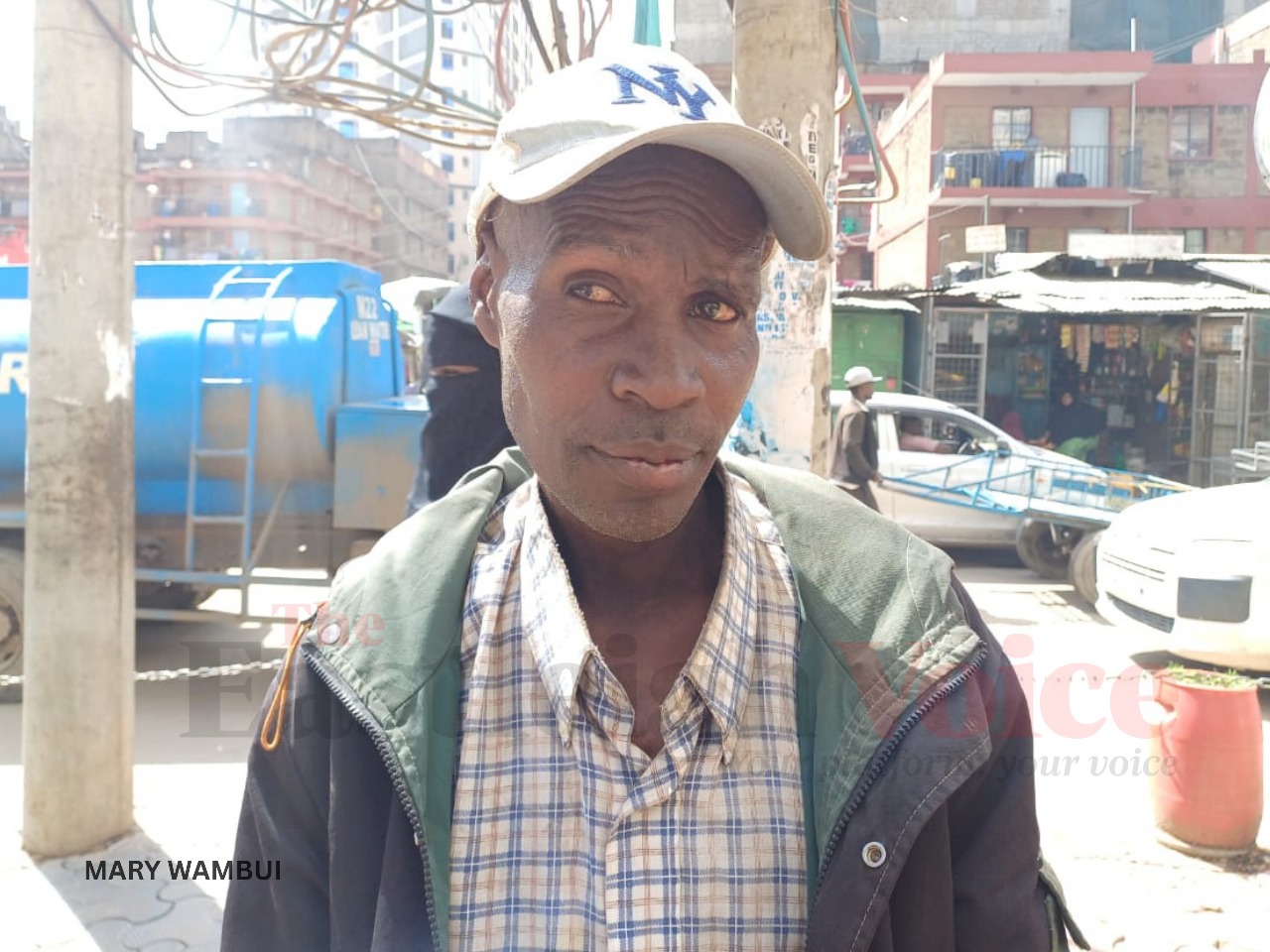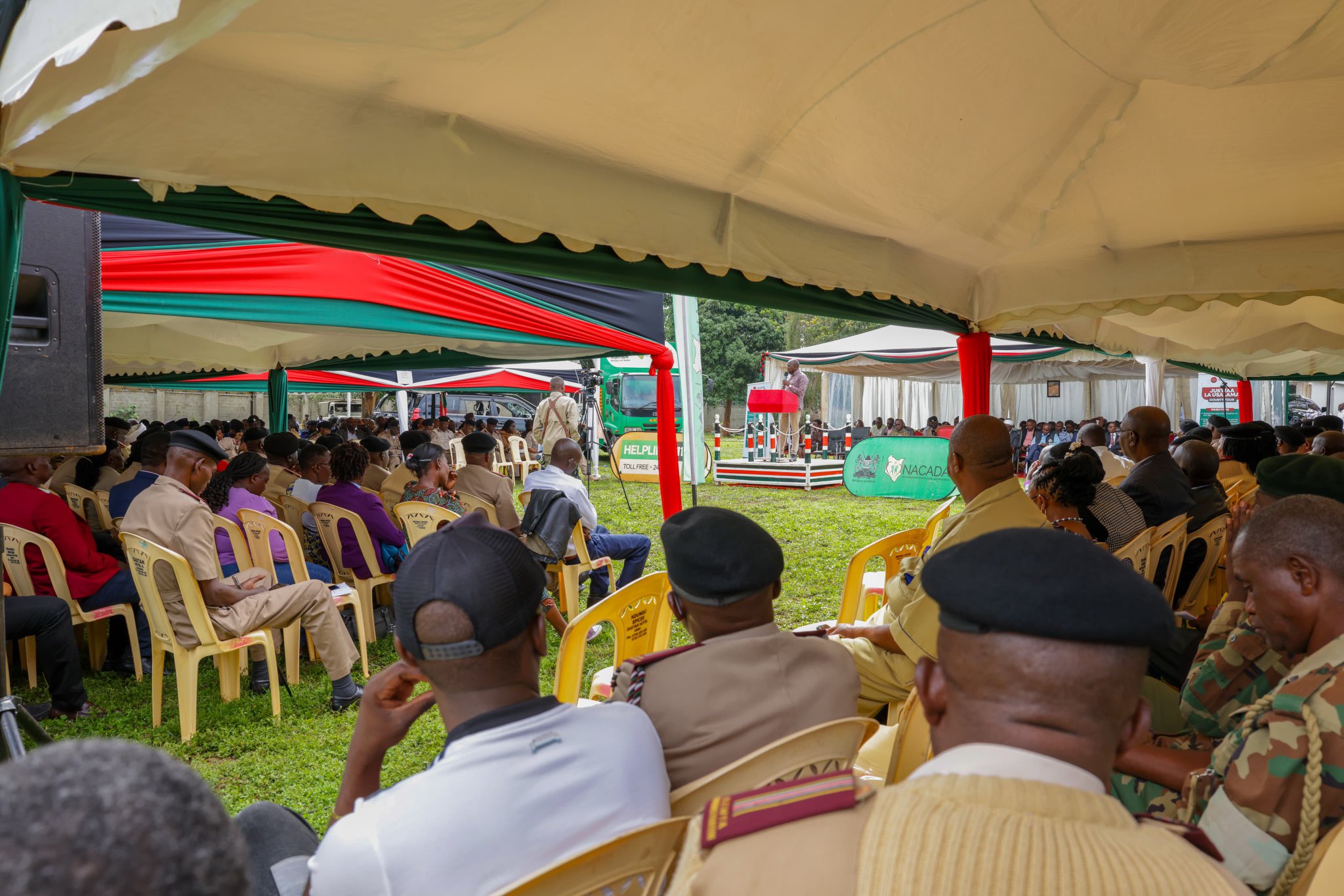Why most Eastleigh residents, just like rest of Kenyans, can't distinguish Nyumba Kumi from Community Policing
Nyumba Kumi resonates well with many citizens as it operates at the household and neighbourhood level, making it more relatable to citizens.
A spot check by The Eastleigh Voice this week revealed that while most Kenyans understand what Nyumba Kumi is, many cannot distinguish it from community policing, echoing the findings of a state report that shows widespread confusion between the two.
The report, released this week, dubbed "Preliminary findings and recommendations for the study on the impact of community policing in Kenya", by the National Crime Research Centre (NCRC), found that a majority of citizens refer to Nyumba Kumi when discussing Community Policing.
More To Read
- From fires to missing children: How Eastleigh’s communal spirit responds to crisis
- Report: Deep-rooted police issues fuel public distrust despite years of community policing
- Kenya’s village elders poised for formal recognition after years on the sidelines
- Senators urge improved terms, protection for village elders and Nyumba Kumi leaders
- Garissa elders warned against using maslah courts to resolve criminal cases
- Mandera residents joins hands with Government in safeguarding peace
Nyumba Kumi resonates well with many citizens as it operates at the household and neighbourhood level, making it more relatable to citizens.
The Eastleigh Voice spoke to some locals, and these were their views;
Emmanuel Kipkirui, a security guard working in California Estate in Eastleigh, said he understands Nyumba Kumi and has seen it work both in his village in Trans Mara and in Nairobi, but has little information on what Community policing entails.
"Nyumba kumi is a small association or group of people who live close to each other that helps solve minor problems that arise in the community. They have their leader who guides in solving the problem and reduces animosity between the warring parties. When I came to Nairobi, I saw there's Nyumba Kumi just like we have back in the village. I don't understand what community policing does," Kipkirui said.
He added that his village's Nyumba Kumi has widened its scope of mandate to cover financial problems that arise in one of the homes.
"For example, I cleared high school recently, and by September, I hope to join another institution. My parents can call for a harambee, and the Nyumba Kumi decides that every homestead will contribute Sh10,000 to take me to school; that way the village grows," he explains.
On his part, Dishon Amunavi, a resident of Majengo estate in Kamukunji, believes Nyumba Kumi has played a big part in lowering crime levels in the country at the village level.
 Dishon Amunavi, a resident of Majengo estate in Kamukunji
Dishon Amunavi, a resident of Majengo estate in Kamukunji
"I don't know what the difference between the two is, but Community Policing checks on family matters, how they are faring, the sick, the children not attending school and so forth but Nyumba Kumi is focused on security when a couple fights, or fail to take children to school, that is what they follow up on mostly at our place in Majengo," he said.
He explained that his Nyumba Kumi has helped the community in solving minor cases without having to report them to the Chief.
"There are some cases, like when I argue with my wife need not be reported to the chief; that way they are solved faster and in a better way because the Nyumba Kumi elders know me and they know her," he added.
Wilbroda Atema seemed able to tell the two apart, she stated that community policing is the umbrella 'body' of the other.
"Nyumba Kumi deals with the village clusters, while community policing is the bigger one and targets bigger areas, not just a village, but both have a similar role. I understand Nyumba Kumi more as it is close to us and is the one we run to when problems arise," she explained.
According to NCRC, Nyumba Kumi is a strategy of anchoring Community Policing at the household level or any other generic cluster. These households can be in a residential court, in an estate, a block of houses, a manyatta, a street, a community of interest, a gated community, a village or a bulla.
 Wilbroda Atema, a resident of Eastleigh, Nairobi. (Photo: Mary Wambui)
Wilbroda Atema, a resident of Eastleigh, Nairobi. (Photo: Mary Wambui)
Voluntary participation
Community Policing, on the other hand, is the approach to policing that recognises voluntary participation of the local community in the maintenance of peace and acknowledges that the police need to be responsive to the communities and their needs.
"Its key element being joint problem identification and problem-solving, while respecting the different responsibilities the police and the public have in the field of crime prevention and maintaining order," the report states.
Both, however, aim to reduce crime and improve security, but with Nyumba Kumi being a strategy of anchoring community policing at the household level or any other generic cluster, it is more about community self-vigilance, whereas National Police Service (NPS)-led Community Policing involves structured collaboration with law enforcement.
The government has actively endorsed and promoted Nyumba Kumi as a key security strategy since its launch in 2013, in contrast to the community policing that has been inconsistently implemented since its launch in 2005.
This has seen some government projects that involve security aspects get mixed up with community policing.
As a result, the overlap causes people to assume all these initiatives are part of community policing, which has the potential for creating security coordination gaps, the report adds.
Attorney General Dorcas Oduor, the Chairperson of the NCRC Governing council notes in the report's foreword that the lack of differentiation between the two also has implications for citizens understanding the objectives underlying community policing approach in that communities may expect Nyumba Kumi to handle security issues, leading to frustration when in actual sense certain context of crimes require police intervention.
 Interior CS Kipchumba Murkomen, during his Jukwaa La Usalama Embu County you,r aimed at collaboration between law enforcement agencies and community stakeholders through initiatives such as Nyumba Kumi. (Photo: X/Kipchumba Muromen)
Interior CS Kipchumba Murkomen, during his Jukwaa La Usalama Embu County you,r aimed at collaboration between law enforcement agencies and community stakeholders through initiatives such as Nyumba Kumi. (Photo: X/Kipchumba Muromen)
At the same time, many confuse community policing initiatives with other government programmes like youth empowerment projects, Kazi Mtaani, and environmental programmes, due to several reasons, among them a tendency of people to assume that all government-led local initiatives are the same or connected.
The report, however, found that though there's confusion on what the mandates of the two are, the findings revealed there's enough evidence that police and community are successfully working together to prevent and reduce crime in the localities.
"Indeed, this finding affirming that community policing had reduced crimes is in tandem with the practice of community policing in other jurisdictions where policing and law enforcement agencies are adopting community-based policing approaches in addressing crime and violence," states the report.
This has been enabled by increased contact and information sharing between the locals and police through community-police hotlines, mobile phones, WhatsApp groups, regular police patrols, Nyumba Kumi focal point persons and community volunteers who share information.
Joint-community-police public barazas, suggestion boxes, joint security/peace caravans, regular police patrols, police presence in the localities and police community-hosted events (football matches, medical camps) amongst others also aided coordination and response time to incidents.
The Centre recommends nationwide public sensitisation and education to the citizens to address the recurring confusion between NPS-led Community Policing and Nyumba Kumi to enhance the effectiveness of the community-police partnership.
Top Stories Today











































